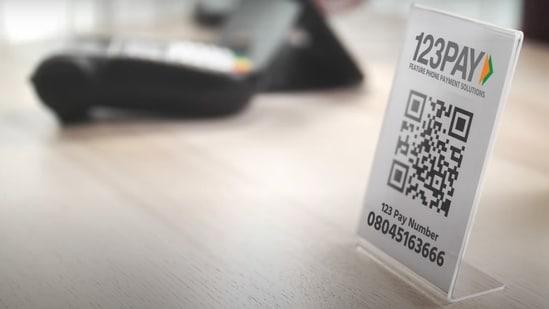New UPI Rules Effective from August 1: Key Changes You Need to Know
Starting August 1, 2025, major updates are arriving for India’s widely used Unified Payments Interface (UPI). These changes, rolled out by the National Payments Corporation of India (NPCI), aim to make digital payments smoother while reducing systematic strain and fraud risks.
If you regularly send money through apps like Google Pay, PhonePe, BHIM, or Paytm, these rule changes will directly affect how you make transactions, check your balance, and interact with your bank details. The circular issued by NPCI on May 21 outlines all these updated protocols, providing insight into both user convenience and security improvements.
Timeline of Events: When Do the Changes Happen?
All updates take effect on Friday, August 1, 2025. From that day, every UPI service provider and app must comply with the new technical and procedural guidelines. Banks and fintech platforms have already begun preparing their backend infrastructure to meet compliance before the deadline.
What’s Changing for Users?
Whether you’re sending rent to your landlord or paying for groceries, here’s what’s going to feel different after August 1:
1. Bank Balance Checks Get a Cap
- Users can check their bank balance up to 50 times per day via their UPI app.
- During peak hours, apps may block balance requests temporarily to reduce API load.
- Every UPI transaction will show the available balance right after it’s processed.
This restriction aims to counter server overload problems often observed during festivals or sales.
2. Time Slots for Auto Payments
Recurring auto-debits—like EMIs or subscription fees—will now only be processed during specific time windows:
- Before 10:00 AM
- From 1:00 PM to 5:00 PM
- After 9:30 PM
If an auto payment is scheduled for 11:00 AM, it may be processed a bit earlier or delayed beyond its regular time. And if it fails, retries will be triggered automatically. If retry attempts don’t succeed, the transaction will be canceled.
3. Controlled Access to Linked Bank Accounts
- Users can check the list of banks linked to their mobile number only 25 times per day.
- View access must be manually initiated after choosing the issuing bank in the app.
This control gives customers better visibility but also limits excessive querying that can clog systems on busy days.
4. Improved Status Updates for Transactions
We’ve all been there: you send money, it gets debited, and then nothing happens. Was it received? Is it stuck?
From August 1:
- The transaction status will have a faster resolution window. It won’t linger in ‘pending’ states.
- Users can only check the transaction status three times, and each attempt must be 90 seconds apart.
This is designed to reduce redundant server requests and improve clarity.
5. Clear Display of Recipient Details
Before any transfer, the sender will now see the registered name of the recipient—along with the transaction ID. This could reduce the frequency of incorrect fund transfers, especially to similarly named contacts or numbers.
“These updates will improve the performance of UPI applications and reduce fraud,” the NPCI stated in its official circular released on May 21.
Official Response and Precautionary Measures
Who Is Responsible for Enforcement?
The NPCI has warned that any payment service provider or financial institution that fails to comply may face penalties. These may include:
- Restriction of UPI APIs
- Suspension from onboarding new users
- Fines based on the degree of non-compliance
The idea here isn’t to punish—at least not at the start. It’s to motivate early adoption for better system health and user experience.
Community Response: What People Are Saying
News of these new UPI rules has sparked mixed reactions. While many users welcome stricter fraud protections, others express concerns over usage caps.
Rajesh Kumar, a college student in Delhi, shared, “I often check my balance multiple times during the day while making small purchases. A 50-check cap seems high, but it’s something I’ll need to watch.”
Some business owners worry about delayed autopayment processing. “We rely on multiple scheduled debits to pay vendor bills daily. If timed incorrectly, it could delay operations,” said Neeta S., a small business owner in Mumbai.
Still, others appreciate the focus on fast transaction status updates and verified recipient details, both of which are expected to prevent accidental errors and financial missteps.
What’s Next?
The days leading up to August 1 will likely be filled with app updates, notifications, and tutorials from major UPI platforms. NPCI has not mentioned any grace period, which implies that the transition is immediate.
UPI apps might start displaying prompts or usage counters to help users monitor their daily checks. In-app timers for transaction status rechecks could become standard. And expect customer service teams to be unusually busy during the first few weeks.
How to Prepare
- Update your UPI app regularly between now and August 1.
- Check for alerts or settings about usage limits and auto-debit schedules.
- Practice cautious behavior—confirm every detail before sending money.
- Consider spreading transactions across multiple UPI apps if needed.
The changes may feel inconvenient at first but are intended for smoother long-term use and greater security. The system has matured, and so has consumer expectation.
UPI isn’t just a trendy payment tool anymore—it’s infrastructure. These tweaks are not cosmetic. They enforce the idea that with freedom comes structure, and with ease comes responsibility. So yes, some mild grumbling is natural. But you might just find things… better, eventually.

